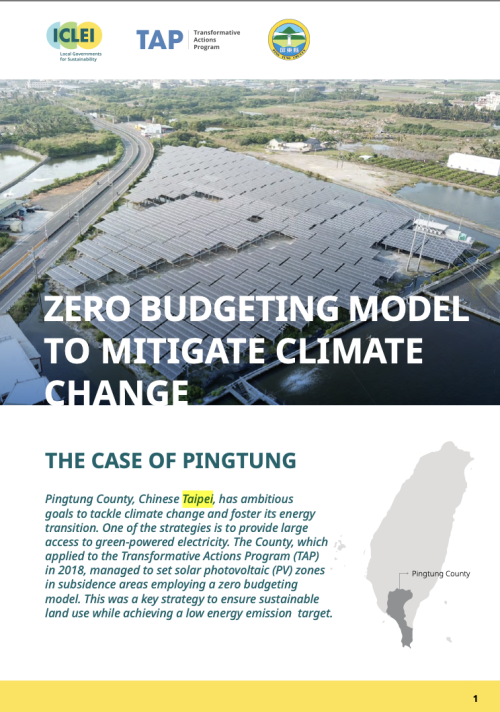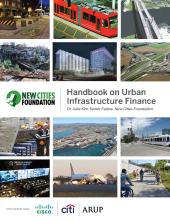Case Study

Zero Budgeting Model to Mitigate Climate Change
This report establishes that Zero Budgeting (ZB) is a challenging approach to budgeting, but it can be a powerful tool for helping cities to achieve their climate goals.
This report provides a guide on how to implement Zero Budgeting (ZB) in local governments. The report includes case studies of cities that have successfully implemented ZB. It highlights that ZB is a budgeting approach that focuses on reducing spending on climate-harming activities and investing in climate-friendly activities. The report identifies that ZB can help local governments to achieve their climate targets by reducing their greenhouse gas emissions and increasing their resilience to climate change. The report highlights that ZB is a transparent and participatory approach that can help to build public support for climate action. It concludes that ZB is a relatively new approach, but it has been shown to be effective in a number of cities around the world.

Financing Urban Transformation: Don’t Leave It Up to Cities Alone
International development institutions have a crucial role to play in the multilevel effort to finance green, low-carbon urban infrastructure projects, as does the private sector.

Handbook on Urban Infrastructure Finance
This guide outlines innovative, sustainable revenue sources and financing tools to help cities make critical infrastructure investments.

UNEA-7 Cities and Regions Summit
Hosted in the lead-up to UNEA-7, this Summit will unite subnational leaders to strengthen collaboration and amplify the importance of cities.

Unlocking Subnational Finance for Green Sectorial Transformation: A Focus on Buildings & Cooling
Hosted during COP30 in Belém, Brazil, these dynamic panel discussions will explore strategies for enhancing access to transformative finance, and how these resources can support local climate transitions.
